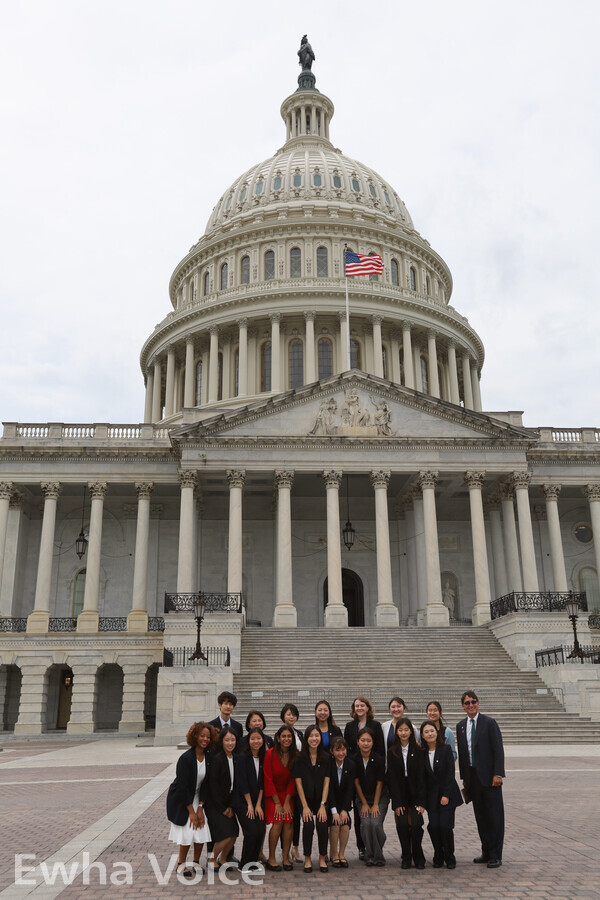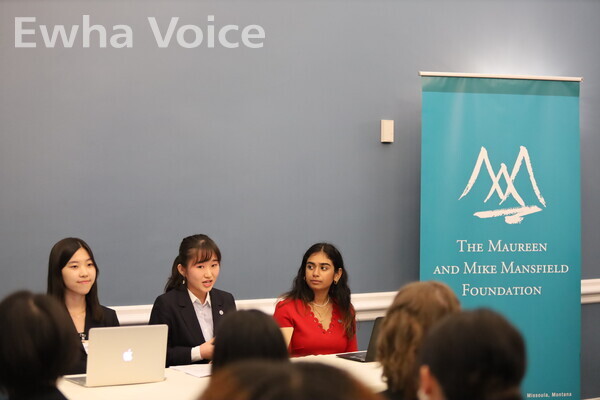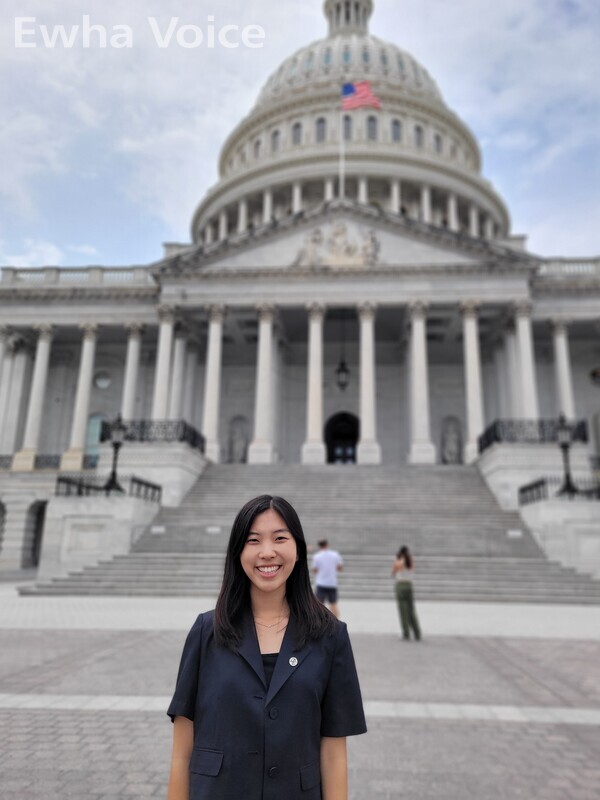
In 2023, the Maureen and Mike Mansfield Foundation, an independent organization that serves as a networking platform between Asia and the United States, launched the Trilateral Youth Empowerment Program with the objective to nurture female university students in the field of politics. A total of 15 student representatives from South Korea, Japan, and the United States collaborated through workshops and group discussions with the mentoring of Congressional staff to draft a policy recommendation for various political challenges. The program served as a new milestone in providing a notable foundation for women’s political leadership, an area that was significantly overlooked throughout the past decades.
At the beginning of 2023, applications were received from the three countries through personal essays and recommendation letters. In February, the final candidates were assigned to groups of three members according to their topics of interest. Haruka Satake, a Japanese graduate from George Washington University, was one participant who applied to the program with a passion for addressing the complex security status quo in East Asia.
“The program gave an excellent opportunity to discuss various diplomatic dialogues with student representatives from other countries in the trilateral alliance,” Satake replied. “Personally, I wished to discuss the continuous security threats from China and North Korea.”
As such, Satake’s team decided to narrow down their policy topic to the need for diplomacy with North Korea for nuclear threat reduction in Asia-Pacific regions, through soft power such as educational programs and cultural exchanges with North Korea.
After the selection of topics, each group’s policy ideas were developed through virtual workshops, mentor check-ins, and group discussions via Zoom meetings over the course of six months. The virtual workshops featured talks with renowned guest speakers. For example, Frank Januzzi, president of the foundation, provided an in-depth overview of policy implementation in Washington D.C., while a former Japanese press secretary explained on how to balance rigorous work and personal life as a woman in executive government position. A comprehensive Q&A session followed each speech where participants received constructive criticism on their progress from the guest speakers.
For every monthly group discussion, participants were required to set meeting goals for their group projects and specify each aspect of the project such as identifying the target audience, coming up with concrete solutions, and assigning roles as speakers and moderators.
Samantha Segeda, a program participant who is a senior at Washington College, shared her experience in devising her team’s policy recommendation.
Titled “Classrooms to Careers: Increasing Women’s University Opportunities to Support Future Employment,” Segeda’s policy brief focused on the lack of support for women to venture into career success, addressing the necessity of a better social structure in both education and workplace. The first step included a thorough analysis of the double standards between the perception of men and women to highlight gender-based deficiencies in society. She and her team analyzed the trend in all three nations, South Korea, Japan, and the United States, where the presence of women significantly lacks in high-leadership positions regardless of their educational achievement.
Next, Segeda referred to specialized networking opportunities that connect women to female professionals and existing policies regarding educational systems and affordable childcare in the workplace. Using the above initiatives and acquiring information from correspondents and program directors in the process, she created a framework that secures the rights of women in career settings.
“In developing our policy proposal, we simply hoped that it would contribute to woman empowerment at work,” Segeda said.
Concluding the program, each finalized policy proposal was presented to U.S. government officials during the August 2023 capstone meetings at Capitol Hill.

Regarding challenges during the program, participants faced language barriers and a lack of common ground between political issues due to different cultural backgrounds. To overcome such barriers, group members translated each other’s proposals and divided research so that everyone had a clear understanding of political issues that they were unfamiliar with.

“In our case, my team members all had varying time zones and working styles,” said Yesun Kim, a program participant who is in her senior year at the Division of International Studies. “It was difficult to coordinate deadlines and organize group meetings.”
In response to the challenges that college students often face during school projects, Kim's group used virtual workshop sessions to identify each of their strengths, establish group rules, and assign responsibility for each person.
According to Kim, the program enabled her to grow as an aspirational scholar, a confident presenter, and a supportive colleague.
Kim’s policy initiative which discussed the enhancement of digital infrastructure in India for Indian women included specific proposals for each government in the trilateral cooperation. Through a series of presentations and feedback sessions with policymakers and experts, Kim realized first-hand the importance of networking from various fields to garner multifaceted perspectives for such a complex strategy.
“Before the program, I was not knowledgeable about policymaking and was afraid of speaking in front of a large audience,” Kim disclosed. “Thanks to the program, I am now more experienced in the practical aspects of incorporating research into public policy and never have I ever been more active in seeking out opportunities to engage in conversation with professionals.”

